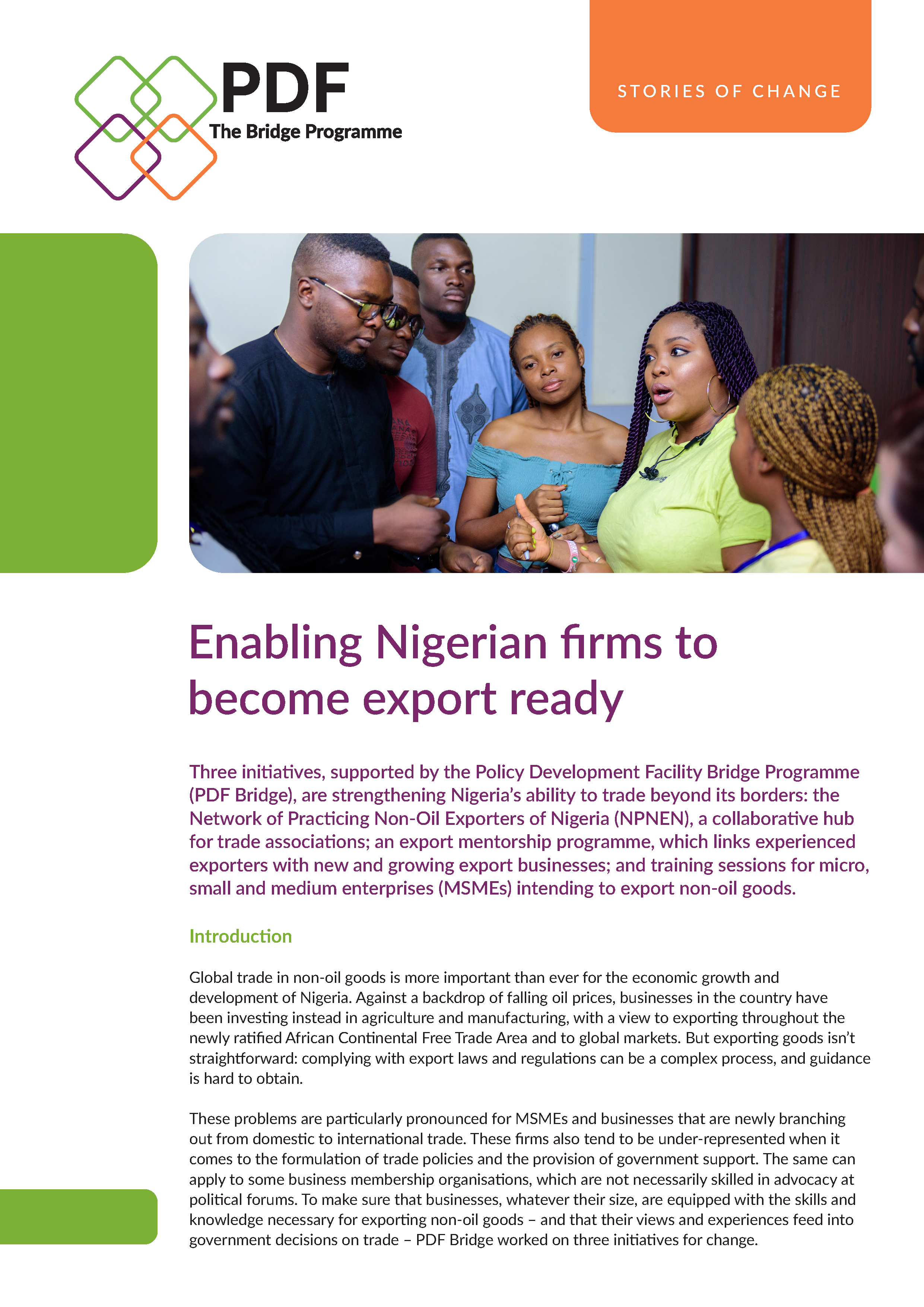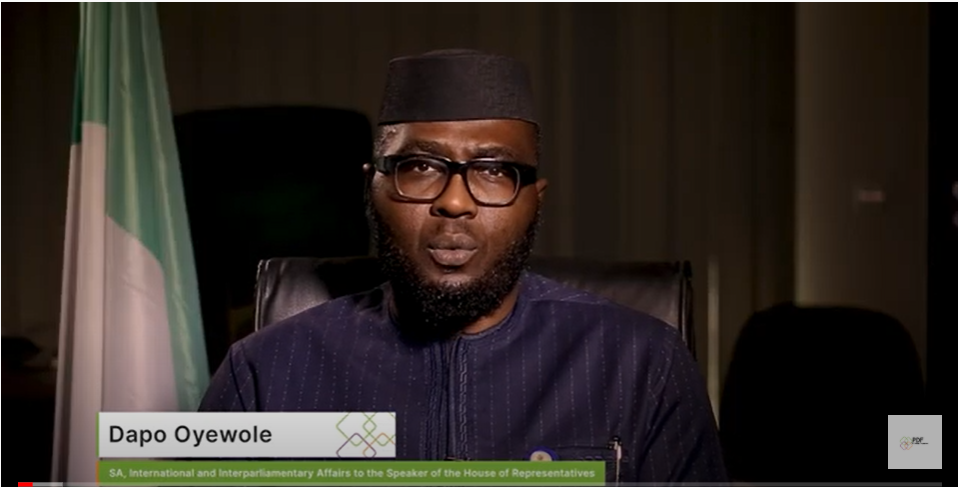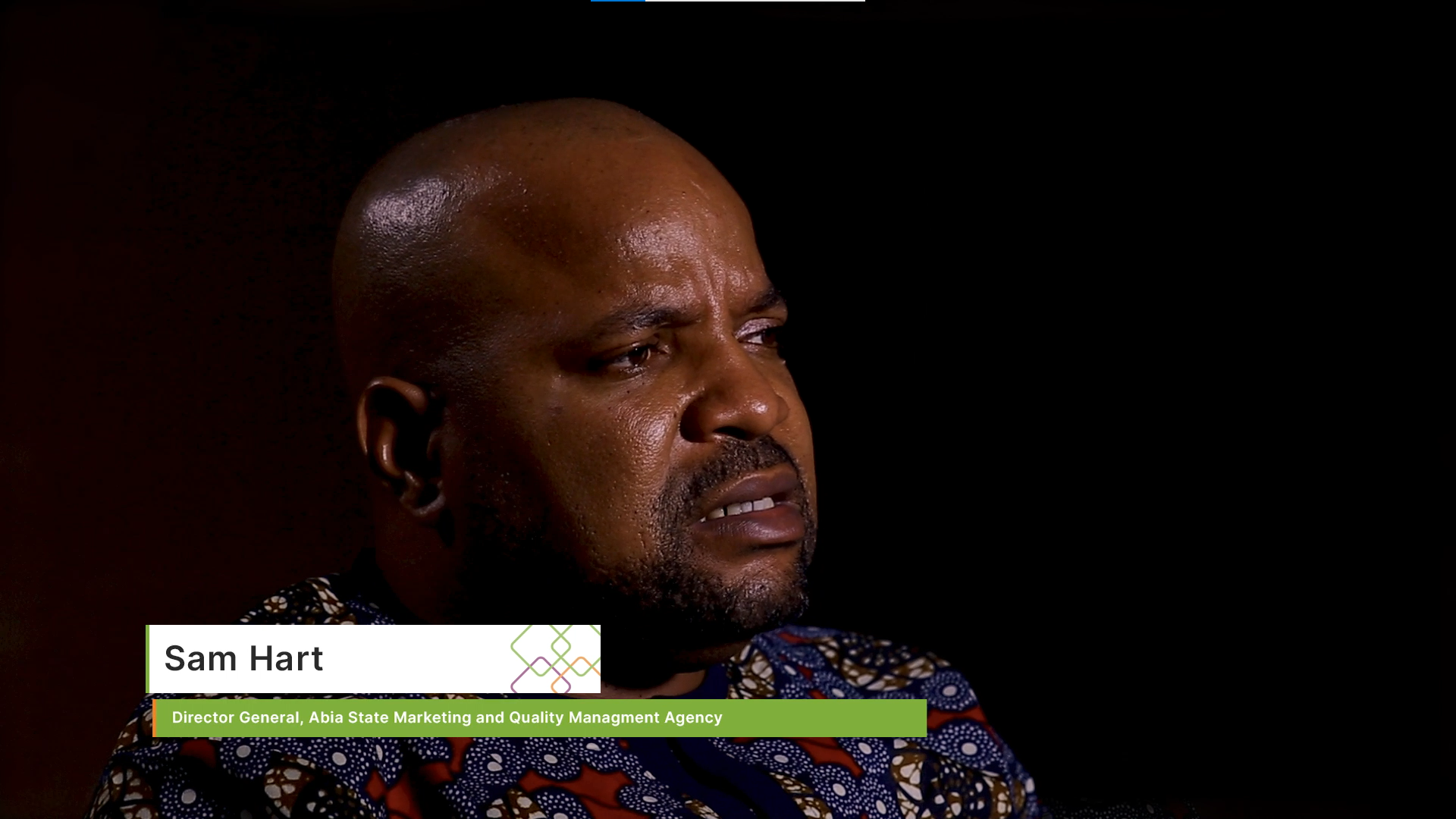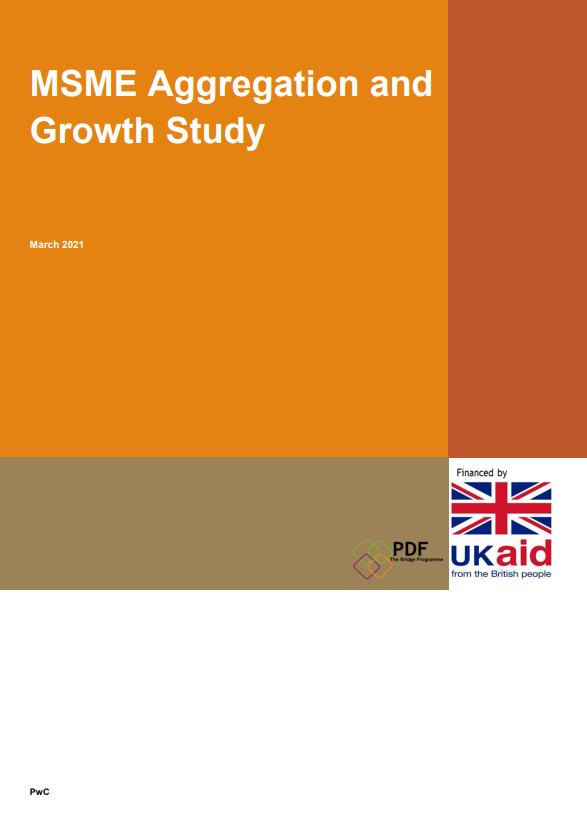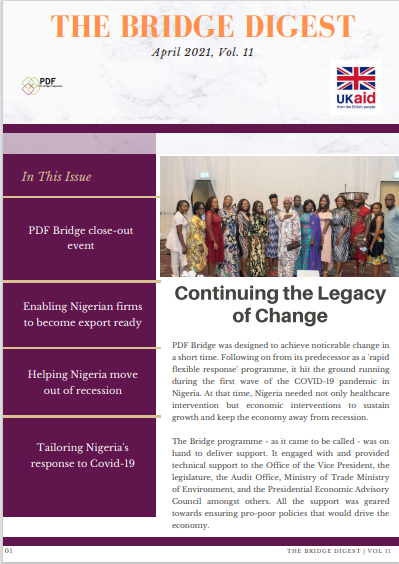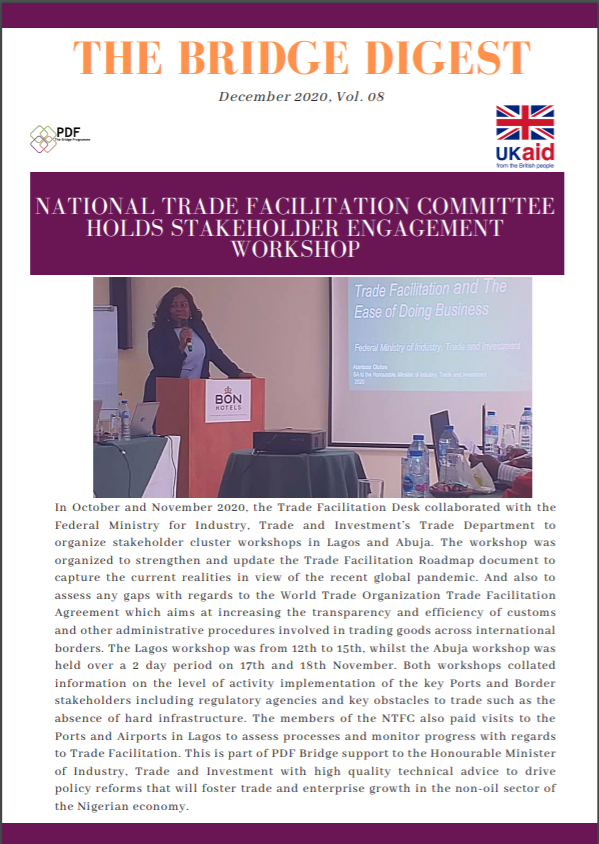Economic Sustainability Plan
PDF Bridge’s embedded advisors at the Office of the Vice President discuss how their contributions led to Nigeria’s exit from recession.
Enabling Nigerian firms to become export ready
Against a backdrop of falling oil prices, the Nigerian government has woken up to its economic vulnerability to oil-related disruptions. This underscores the need for diversification to non-oil exports. PDF Bridge supported the drive towards growing non-oil export by supporting under-represented non-oil exporters through three strands of work: strengthening Nigeria’s ability to trade beyond its borders through the Network of Practicing Non-Oil Exporters of Nigeria (NPNEN), an export mentorship programme, which links experienced exporters with new and growing export businesses; and training sessions for micro, small and medium-sized enterprises (MSMEs) intending to export non-oil goods were held on; Market Entry Strategies, Understanding export documentation, Raising Finance for Export, Branding, and packaging for export. In addition, Roundtables were held on;
- Addressing Barriers to Access to Foreign Markets – An analysis of Spices & Herbs, Textiles & Garments, and Leather Products;
- Analysis and Impact of Export Expansion Grant on Export Potential, Market Access and Export Competitiveness in Nigeria;
- Improving Market Access through Digital Trade and;
- Analysis of Potentials of Nigeria’s Services Sector for Economic Diversification, Employment and Foreign Trade;
- Diversification and Non-oil Export Opportunities for Nigeria States Post-COVID19 Study
Engagement with the legislature
Dr. Dapo Oyewole and Dr. Greg Ezeilo, PDF Bridge Technical Advisors appointed to support the Office of the Speaker and the Public Accounts Committee of the House of Representatives respectively discuss their contributions to pro-poor policies.
Improving Trade Policies in Nigeria
Crude oil prices took a deep plunge in April 2020 with Brent Crude dropping below $20 per barrel. With the ongoing Covid-19 pandemic and crashing oil prices, the need for Nigeria to be less reliant on oil becomes more glaring. The Policy Development Facility Bridge programme’s Trade Policy Workstream (TRD) has been supporting the growth of the non-oil export sector since its predecessor programme Policy Development Facility II (PDF II). The support is a two-pronged approach that is targeted at increasing the number of export-ready MSMEs in the non-oil export trade. This approach explores enabling the identified underrepresented export-oriented voices in economic policy and strengthening the sustainable participation of exporter groups. Listen to the changes that have occurred.
Lifting 100 Million Nigerians out of Poverty
The Policy Development Facility Bridge programme’s Trade Policy Workstream (TRD) has been supporting the growth of the non-oil export sector since its predecessor programme Policy Development Facility II (PDF II) by enabling underrepresented export-oriented voices in economic policy and strengthening the sustainable participation of exporter groups.
One of the many ways TRD is addressing this is through an innovative trade mentorship programme. The programme is connecting non-oil export potentials with experienced mentors who have practical regulatory, sourcing, shipping, marketing, and export financing knowledge. The mentors will handhold the mentees helping them escape the initial pitfalls that plague inexperienced exporters. The programme began on November 18, 2020 and currently has 7 mentors and 17 active mentees.
PDF Bridge Advisors leveraged evidence from research conducted by PDF Bridge in contributing to the development of an Economic Sustainability Plan (ESP) which focuses on a post-covid19 economy recovery targeting retention of existing jobs, creating new jobs, levering digital skills to export services, and advocating for interventions which seek to de-risk the environment.
Market Entry Strategies
This training addresses the knowledge and skill gaps in accessing the export market. PDF Bridge through this contributes to the vision to grow Nigeria’s non-oil export to an average of 20% of total export by the year 2030.
MSME Aggregation and Growth Study
Micro Small and Medium-Scale Enterprises (MSMEs) are integral to the stimulation of developing economies as exploiting the full capabilities of MSMEs will improve trade competitiveness aimed towards achieving the objectives of the Africa Continental Free Trade Area (AfCFTA). PDF Bridge Programme recognises the role that MSMEs can play in the implementation of the AfCFTA; and is supporting the National Action Committee of the AfCFTA Secretariat by funding this study.
PDF Bridge Closeout Dinner (Photospeak)
Photos from the Dinner hosted by the Policy Development Facility Bridge Programme to mark the end of the programme. The dinner was well attended by Champions of Change from various MDAs, the National Assembly, and the Presidency. Attendance was done within the limits of set COVID-19 regulations.
PDF Bridge Final Newsletter – Eleventh Edition
It is our final newsletter for the PDF Bridge programme and we would like to say a massive thank you to every one of you for being critical stakeholders. Read on as we share our success stories and highlight our triumphs in the last one year.
PDF Bridge Monthly Newsletter – Eighth Edition
This edition of the Bridge Digest highlights PDF Bridge support to the National Trade Facilitation Committee and the OAuGF towards improved AFROSAI-E ratings. Read about our semi-formal event that took place in Sheraton Hotel, Knowledge Management Network Lunch meeting, our Trade Mentorship programme and other insightful events.

